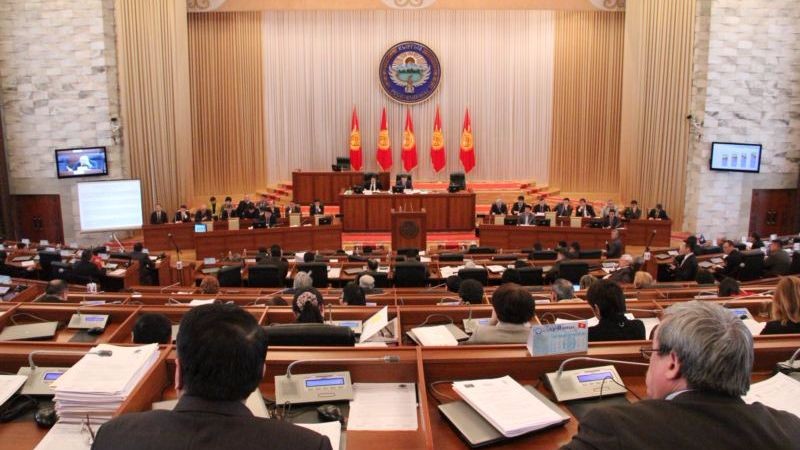The petition says the bill violates the Constitution as it contains “discriminatory norms contrary to basic democratic principles” which will also hurt the Kyrgyz economy.
The activists oppose the bill — which targets foreign non-governmental organizations (NGOs) and local NGOs with funding from abroad — because most foreign aid in Kyrgyzstan is provided through NGOs.
They note that while the bill’s proponents think foreign NGOs are a threat to national security, a lot of the foreign aid goes to help the commercial sector. If passed, the law could hamper the work of charitable and humanitarian organizations “which is badly needed for the people of the country.”
“Society and state bodies do not fully realize the importance and scope of NGOs activities in Kyrgyzstan,” the petition says. “They fulfill functions which government and market institutions are not able to properly perform.”
The day the petition was released, Human Rights Watch urged the Kyrgyz parliament to withdraw the bill, calling it “highly repressive.” On June 12, a number of other international organizations also called to abort the bill.
“The draft law is incompatible with international human rights obligations, restricting freedom of association and expression,” said Syinat Sultanalieva, Central Asia researcher at Human Rights Watch. “The draft law poses a serious threat to Kyrgyzstan’s vibrant civil society and should be withdrawn.”
At the end of May, 33 MPs — a third of the parliament — co-signed the new foreign agent bill. The group of MPs argued that the proposed law is necessary because many NGOs "interfere in the political life of the state... striving to shape public opinion" in order to destabilize the country.
If the law is finally approved, NGOs subject to the bill’s restrictions will have to proactively apply for the status of “foreign representatives,” or their activities can be suspended for up to six months and their bank accounts frozen.
Once registered, organizations will have to provide the state with information about their activities and management, justify all their expenses, and report on the finances they receive from foreign sources.
Additionally, foreign NGOs will have to undergo costly audits upon request by state institutions and publish reports every six months regarding their founders, current assets, sources of financing, and expenses.
The draft law would also empower authorities to fine individuals or sentence them for up to 10 years if they work for an NGO that incites citizens "to refuse to perform civic duties" or commit "unlawful acts." The bill does not offer precise legal definitions of these terms.
One of the six parliamentarians who want their names removed from the bill said that he put his name in the list of signatories only so he could read the bill early, while two others said that the final bill doesn’t match their suggestions and expectations.
“Although the points I proposed were included, they were introduced with different wording and many other points were written with which I did not agree. Therefore, I was forced to write an application for exclusion from the list of initiators of the law,” wrote MP Emil Toktoshev on Facebook.
Parliament has not yet announced when it will review the bill. It is up for public discussion — a procedure that allows the public to read and react to the bill — for at least one month. Before it can become law, the proposal will have to pass in three readings and be signed by the president.
Kyrgyz MPs have been attempting to adopt a foreign agent law for years, but every attempt has failed due to public outrage and international criticism.



